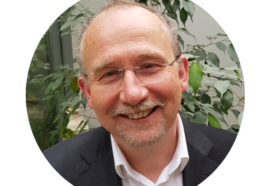In this series we look at different career paths in CAMHS – scooping up pearls of wisdom from professionals across disciplines and at all stages of their careers.
Laura Baker, 32, is CAMHS Strategic Lead for Cygnet Healthcare – a private healthcare company.
Cygnet runs a number of services, among these are four acute CAMH inpatient units, which receive both private patients and referrals from the NHS.
Laura’s role is the first to oversee CAMHS across the entire company. She spends most of her time training other staff and working with management teams at Cygnet’s CAMH sites in Bury, Sheffield, Woking and Godden Green.
“It’s predominantly about establishing clear clinical models and pathways” she said.
As well as standardising care, Laura is also responsible for innovation, looking at the latest guidance and proven interventions from other acute and psychiatric intensive care unit (PICU) wards.
Her career has spanned a range of settings, including roles in forensic, home treatment, A&E liaison and community services.
“My first experience with CAMHS was in a medium secure setting as a healthcare worker, then as a student nurse – that’s what got me into CAMHS – it was an amazing experience, I absolutely loved it,” she said.
Her breadth of experience has come from a conscious choice to see and understand different clinical settings.
“It was a very deliberate thing, especially the move from inpatient to community,” she said.
Laura said that as well as therapeutic skills, her move to community care taught her to be realistic about the resource pressures facing these services – vital to ensuring acute patients can be safely discharged.
“Making the move into the community gave me the ability to do the job I do now,” she said.
Cygnet’s role as a provider of NHS PICU services means Laura has to make sure the company can meet the recently-established service specifications for PICUs – including quite specific timings around length of stay.
“We had to look at our documentation and our care plans and make them shorter and more crisis-management focussed,” she said.
She says innovation is the biggest difference between working in the NHS and the private sector.
“If I come up with an idea, ground it in enough theory, and show it is service-user focussed, I have the flexibility to run with that,” she said.
In spite of this, she said she still loves the NHS, and that it would be great to go back one day.
“I would go back feeling more confident – if you can justify a change as more positive for the service users then you should fight for that,” she said.
Recent developments across Cygnet’s acute CAMH services include a big push to make staff more aware of the high probability of previous trauma in patients.
“At the moment I’m doing quite a lot of training around trauma-informed care,” she said.
The goal is to promote a culture among staff that avoids re-traumatising people. Laura encourages staff to emphasise characteristics like trustworthiness, choice, collaboration and empowerment.
The goal is to “create a culture that lends itself to those who’ve experienced trauma,” Laura said.
Laura’s career shows the value a breadth of experience can bring, particularly for those who want to get involved in changing healthcare systems, as well as helping individual patients.
“The job I’m in now is my perfect job – I love that I’m developing services and that it’s innovative,” she said.
Discover more articles from The Bridge.


